August 11, 2025 | 10:44 GMT +7
August 11, 2025 | 10:44 GMT +7
Hotline: 0913.378.918
August 11, 2025 | 10:44 GMT +7
Hotline: 0913.378.918
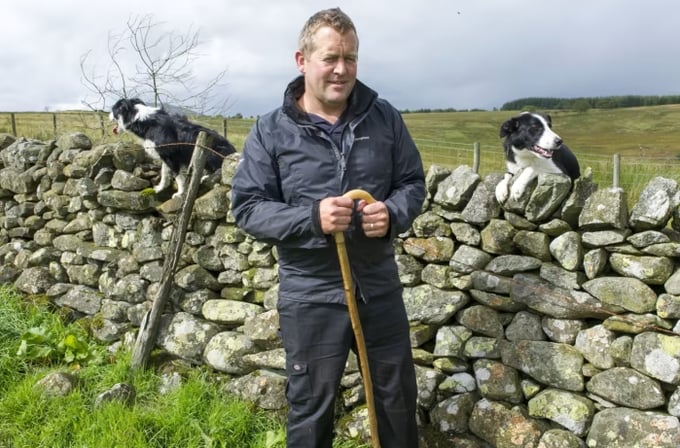
James Rebanks, author and shepherd, with his border collies Tan and Floss at Racy Ghyll Farm, Troutbeck, near Penrith in Cumbria
England’s post-Brexit farm payments sounded like a promising opportunity for Jane Bassett. The third-generation farmer takes pride in the species-rich meadows — a playground for hares — on her small Peak District livestock farm and the new scheme replaces EU subsidies with cash for environmental work.
Yet not only is Bassett unsure whether to take part — she is considering leaving farming altogether. The family farm’s income prospects now look so worrying under the new government funding regime, she said, that “everything is on the table, including selling up”.
“It is a crunch year for a lot of farmers, us included,” she said.
Bassett and other upland farmers are at the heart of concerns over the environmental payments system, which is finally taking shape almost seven years after the Brexit vote gave the UK the chance to leave the EU’s Common Agricultural Policy. The shift towards funding green initiatives, set out after the vote, met with broad approval.
But Minette Batters, president of the National Farmers’ Union, warned at the group’s February conference that progress on developing the scheme was “stuttering and partial” and “there is a worrying lack of transparency on how the budget is being spent”.
A sense is growing among rural communities that Brexit has brought more risks than benefits. The funding shift is hurting farmers as EU-style payments are cut year by year; those payments, based on land area, are at least 35 per cent lower in 2023 than pre-Brexit.
Farmer Thomas Binns was applauded at the NFU event when he invited environment minister Thérèse Coffey to “look at the detail [of the payments scheme] and see where we can ease this pain for upland farmers”.
Hill farmers in particular are being offered payment rates far below those paid within the EU, leaving their finances in a precarious state, which is pushing some to increase livestock cultivation rather than restore nature.
James Rebanks, a Lake District farmer and author of The Shepherd’s Life, said: “Farmers like me are absolutely dismayed by what is being offered.
“We were led to believe that, yes, we would lose this subsidy, which no one thought was a great idea but which propped up upland farming — but we would get an enlightened, progressive system under which we could produce public benefits to replace some or all of that income . . . What we’re getting is a cost-cutting, cheap and nasty version.”
Rampant cost inflation is also taking its toll. According to official data published last week, the typical grazing livestock farm in the English uplands faces a drop in farm business income — a measure of net profit — of almost two-thirds this financial year to £16,300.
Projections by Julia Aglionby, professor of practice at the University of Cumbria’s Centre for National Parks and Protected Areas, suggest income will recover to £22,900 in two years before slumping back to £16,700 — just above a third of its 2021-22 level.
At the heart of the squeeze on government payments is a decision to calculate payments on the basis of “income foregone, plus costs” — paying for green improvements at rates aiming to recompense farmers for the resulting fall in agricultural income. For some farms that took part at pilot stage, said Batters, the work was simply not cost-effective.
Upland farms are particularly affected because they tend to produce less food than lowland sites, meaning they are considered to have “foregone” less income and are paid lower rates. Most farmers will receive £151 a hectare for managing grassland with minimal fertiliser, but those doing the same work in so-called “severely disadvantaged areas”, or upland farms, will be paid only £98.
Aglionby said: “Biodiversity and carbon stored in the uplands is worth as much as in the lowlands.” Given the low income of the typical upland farmer, they should be a target for government attempts to “level up” regional income disparities, she added. “The green economy is a great way to do that but the way the government is shaping post-CAP policy is not.”
Rebanks, an advocate of environmentally friendly regenerative farming, said many of his neighbours were looking to intensify their livestock cultivation. “Every single farmer I’ve spoken to in the last two weeks has said . . . ‘If they’re going to offer me way less money than they used to do, I have to earn my money from production and sweat my assets more, or I just can’t pay my bills’.”
That trend is of particular concern because England’s hills — like those managed under different payment schemes in Scotland and Wales — present a significant opportunity for positive ecological change. The government-commissioned National Food Strategy, issued in 2021, highlighted data showing uplands were well-suited to capturing carbon and fostering species diversity.
Rebanks has carried out projects from restoring a peat bog to “rewiggling” a river and letting grassland rest to improve soil quality; he has written of greener farming bringing back species such as barn owls.
Adding to the anxiety of farmers is the view held by some environmentalists, such as George Monbiot, author of Regenesis, that less fertile uplands should be returned to nature altogether. That view is anathema to farmers who argue that hundreds of years of sheep and cattle grazing have shaped landscapes beloved by local communities and visitors.
Monbiot’s is not a view Westminster has backed, but some campaigners say a lack of clear post-Brexit direction has exacerbated farmers’ fears.
“The Welsh sustainable farming scheme has very much stressed that the cultural significance of farming has to be taken into account,” said Rob Percival, head of food policy at the Soil Association. “That’s something we haven’t seen in terms of the ‘public goods’ foundation of [England’s post-Brexit scheme]. Rural communities can feel somewhat under siege . . . farmers are struggling to understand quite what their role really is.”
Batters, Rebanks and others agree the £2.4bn of annual funding pledged throughout the current parliament — an amount rapidly shrinking in real terms — will be far from enough for the food system to approach goals such as net zero carbon by 2050.
(FT)
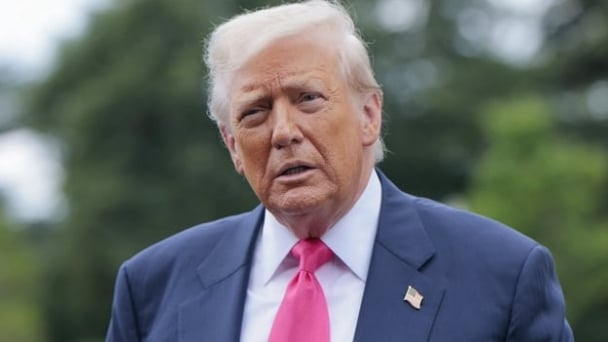
(VAN) Officials are debating how to placate farmers’ need for migrant labor without appearing to offer amnesty to undocumented immigrants.
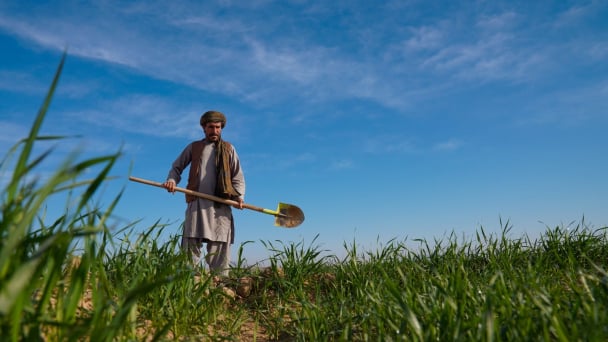
(VAN) New partnership to help over 150,000 people enhance food production, incomes and climate resilience across 15 provinces by May 2026.
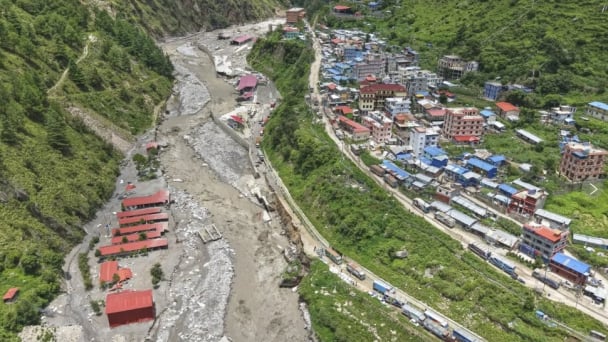
(VAN) Floods that damaged hydropower dams in Nepal and destroyed the main bridge connecting the country to China show the vulnerability of infrastructure.
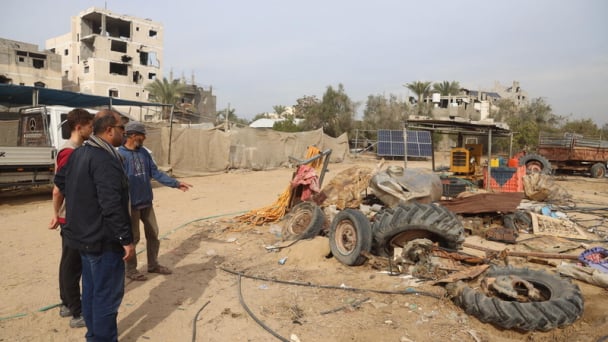
(VAN) Immediate and sustained ceasefire and unhindered humanitarian access are critical to avert imminent Famine.
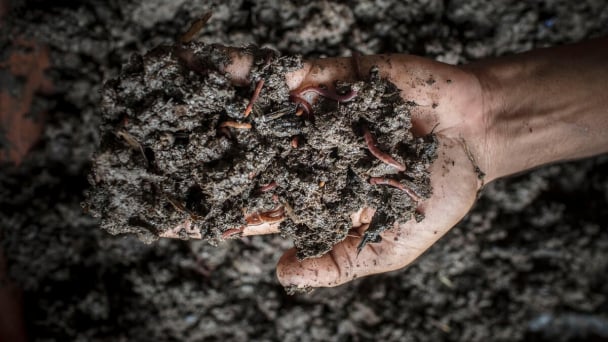
(VAN) FAO-led publication outlines structure and highlights agenda including new harmonized indicators and capacity building accessible to all.
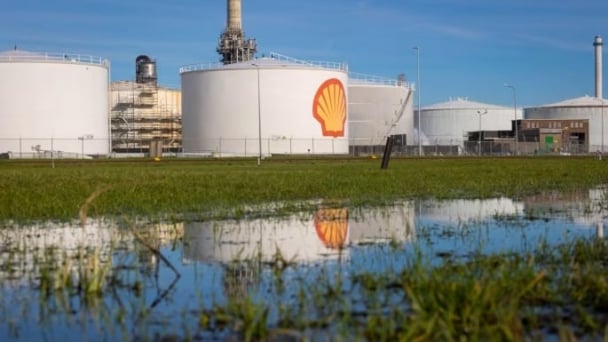
(VAN) Energy group experts left after draft guidance on global warming plans ‘did not reflect the industry view’.
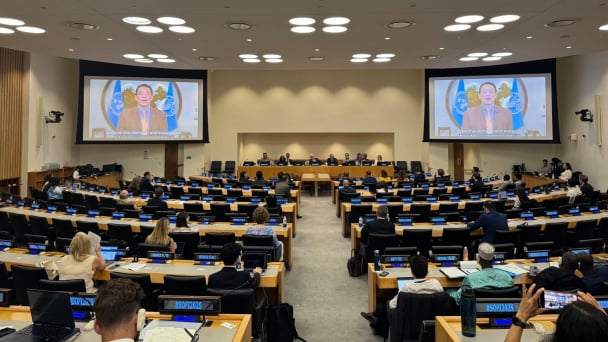
(VAN) Special Event in New York explores the causes, consequences and solutions to the 2021-2023 food price inflation.